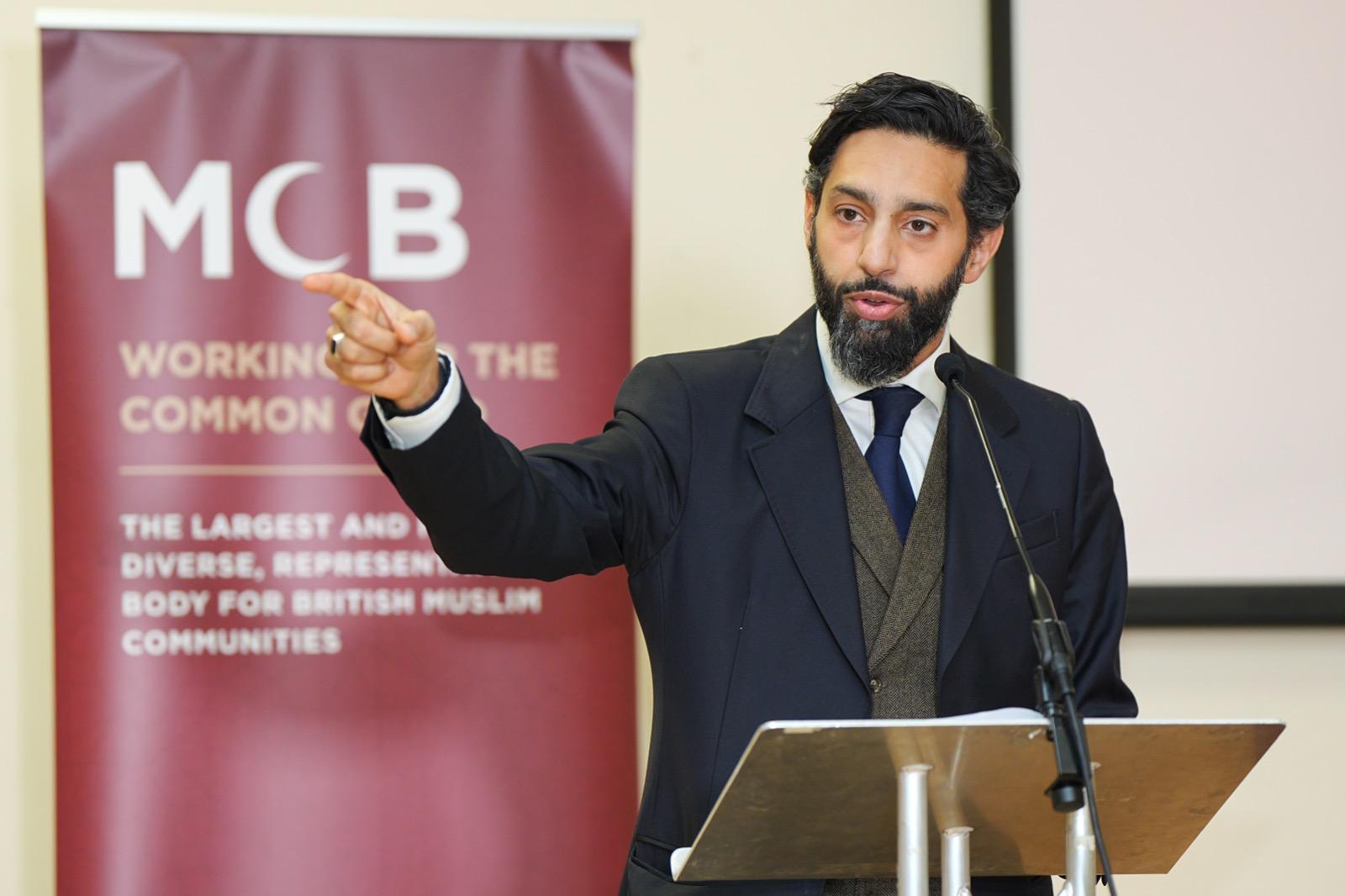
By Abu Yusra Chowdhury
Dr Wajid Akhter has been elected as the new Secretary General of the Muslim Council of Britain (MCB), succeeding Zara Mohammed in an election that comes at a crucial time for British Muslims.
The election took place as delegates representing 500 affiliated organisations from across the country convened to vote for the National Council, who in turn elected the Secretary General and Deputy Secretary General. Dr Muhammad Adrees of the Muslim Council of Scotland also contested the position.
In his inaugural address, Dr Akhter called for “open-heart surgery” of the organisation, unveiling “Vision 2050” and promising substantial reforms to the 27-year-old organisation. “Since the MCB was founded in 1997, our community has changed, our country has changed, and our challenges and opportunities have changed – as an organisation we must change as well,” he stated.
The new Secretary General emphasised the need for “a community that has a unity of purpose, not a uniformity of views” and outlined his vision of British Muslims leading in various sectors, including the AI revolution.
Maswood Ahmed, a veteran community leader with over 35 years of experience in social work, was elected as Deputy Secretary General.
[Photo: Deputy Secretary General of MCB, Maswood Ahmed. Photo courtesy MCB)
Outgoing Secretary General, Zara Mohammed, reflected on her tenure, stating, “It has been one of the greatest honours of my life to serve as the Secretary-General of the Muslim Council of Britain over the past four years. These have been some of the most challenging years for British Muslims, marked by rising Islamophobia, extreme far-right riots, global conflicts, and uncertainty.”
The MCB, established in 1997 following three years of grassroots consultation, has grown to become the UK’s largest Muslim umbrella organisation. However, the election was foreshadowed amid some controversy.
Just days before the MCB election, reports in right-wing media emerged about the formation of a new body, the British Muslim Network, scheduled to launch on February 25. While representatives of the new organisation have stated it will not compete with existing Muslim bodies, the timing has raised questions among community observers.
It is also unclear whether interventions made by Conservative politicians in Parliament were also timed ahead of the MCB election. During January, three Conservative Party MPs, Shadow Communities Secretary Kevin Hollinrake, former Defence Secretary Gavin Williamson and Nick Timothy, put questions to the government about engagement with the organisation. Just days before January 25, Conservative MP Gavin Williamson asked whether there was continuing government contact with the MCB, citing unspecified “real reasons” for the previous government’s decision to break relations.
Nick Timothy MP made two interventions about the Muslim Council of Britain in January alongside interventions on social media arguing for government non-engagement with the MCB. Timothy has previously authored articles in The Telegraph advocating measures affecting Muslim communities. In an October 2023 article, he called for what he termed “a more muscular approach”, proposing: “a register of imams and mosques”, “the burqa should be banned in public places, and the hijab banned for school children”, “Islamic supplementary schools should be regulated properly”, “sharia marriages criminalised”, and “public funding for mosques and Islamic centres must cease.” He explicitly acknowledged these measures would amount to “picking on the Islamic faith” but argued they were necessary.
Earlier in January, the right wing think tank Policy Exchange, published a research note claiming to find questionable past statements from the two candidates which in their view ‘makes the prospect of official re-engagement even less likely, and less desirable, than before’. Addressing these allegations in his inaugural speech, Dr Akhter said: “Dr Adrees and I faced familiar smears questioning our loyalty – the kind British Muslims in public life know all too well. As someone born and raised here, I find it painful to have my Britishness questioned by self-appointed judges of who is a ‘good’ or ‘bad’ Muslim.”
The latest Muslim Council of Britain election was held amidst the continuing debate about Muslim representation for the last two decades. This has been a period where, amid the backdrop of government seeing Muslims through the prism of security, various attempts have been made to establish what critics describe as government-sponsored alternatives to the MCB. Previous initiatives included the Sufi Muslim Council and the British Muslim Forum, among others.
The new MCB leadership faces the challenge of navigating these complex dynamics while maintaining its role as a democratically elected, grassroots organisation. Questions of Muslim representation and engagement with government institutions remain an ongoing feature of British political discourse as Dr Akhter begins his tenure.
[Photo: New Secretary General of the Muslim Council of Britain, Dr Wajid Akhter. Photo courtesy MCB)